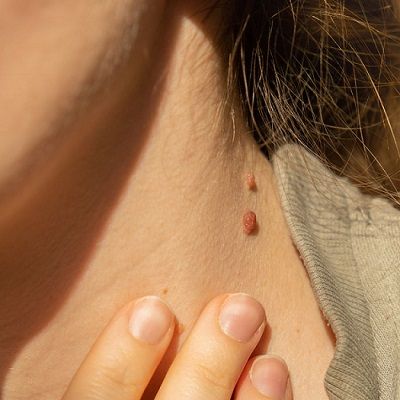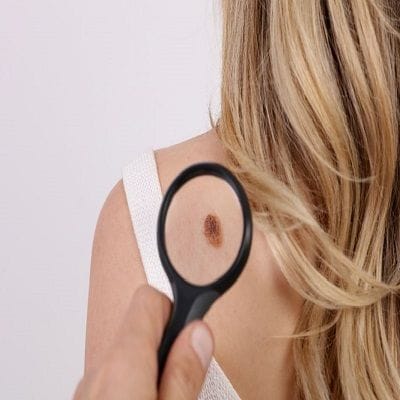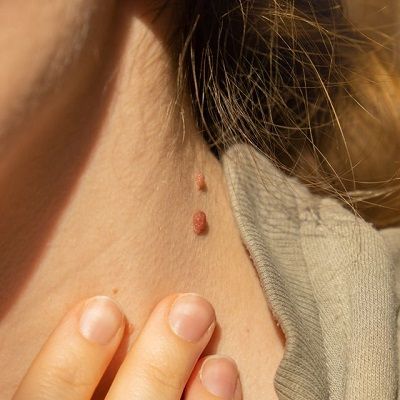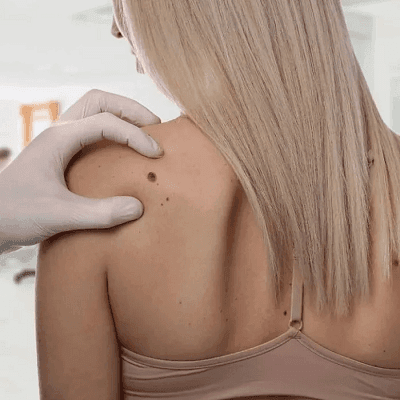
Skin tags are tiny, soft, benign skin growths that protrude from various body parts. They seldom cause discomfort and pose no health risks. However, a tag frequently appears where it might irritate people and cause discomfort by rubbing against their clothing and jewelry. Additionally, a skin tag might bother you if it appears on a part of your body that is visible, such as your face or neck. As a result, a lot of people choose to get their Skin Tag Removel in Dubai. Here is all you need to know about the procedure for removing skin tags.
What Leads to the Growth of Skin Tags?
Skin tags often develop as a result of an overgrowth of skin cells in the outermost layers of the skin. They often appear in fat or overweight individuals with fleshy folds of skin. People with type 2 diabetes or elderly adults frequently wear these tags. Skin tags can also appear in pregnant women, although commonly after giving delivery.
Can You Safely Remove Skin Tags Yourself?
There are so many ways through which you can remove skin tags. But these procedures can put you in danger. And can harm your health as well. Large skin tags can bleed a lot if you try to remove them yourself. So, you should get treatment from a qualified dermatologist. We have a variety of treatments at Dynamic Clinic Dubai for skin tag removal. Here is a complete guide about these treatment options.
Treatment Options:
The majority of skin tags are harmless and don’t need treatment. Unless they are repeatedly touched or twisted, they do not hurt or feel uncomfortable. But many individuals desire to get rid of them since they might not look nice on the skin. There are various methods for Skin Tag Removal in Dubai & Abu Dhabi including the ones listed below.
Excision:
This surgical method entails completely removing the skin tag using a knife. The surgeon applies a lotion to numb the skin before cutting the tag free from the skin’s surface. Usually, this process is short and easy.
Cryotherapy (Freezing):
This rapid procedure involves using a cotton swab, spray device, or injection to apply a particular solution to the skin tag. This solution is often argon gas or liquid nitrogen. As a result, ice crystals start to develop inside the skin tag, breaking apart the tissue cells without harming the skin cells around it. Usually, the skin tag disappears and is not followed by any scars.
Cauterization:
Cauterization involves burning the skin tag tissues with an electric charge using portable equipment. The effect is that the skin tag comes off. Because it is an outpatient procedure, there is no subsequent recuperation time.
Ligation:
During this procedure, the doctor attaches a tiny band to the skin tag’s base. As a result, the tag’s top portion loses its blood flow and falls off by itself. This procedure may need many days and be rather uncomfortable.
All of these procedures could cause some little discomfort. However, before repairing the skin tag, your surgeon will numb the region with an anesthetic. Your surgeon may use medication to halt the bleeding if there is any. The wound is finally dressed and allowed to heal
Skin Tag Removal Using Laser:
The laser used to remove skin tags produces a powerful light beam. This laser beam burns and decimates a skin tag’s tissues, causing it to come off as a result. It takes around 30 minutes to do this outpatient surgery.
Who Can Have Their Skin Tags Removed?
Both men and women can have skin tags. Despite the fact that they are safe and non-cancerous, many individuals desire to get rid of them. A method of Skin Tag Removal in Dubai is right for you if you:
- Have a skin bump or abnormal growth anyplace on your body.
- A bodily discomfort as a result of these unusual skin growths.
- Want to look better by getting rid of these protruding skin growths.
Benefits:
You may gain from the Skin Tag Removal Procedure in Dubai in a number of ways, including the ones listed below.
- The skin becomes smoother and removed the obvious skin tags.
- Reduced skin irritation, which typically happens when skin tags touch clothing or jewelry.
- If the skin tag was discovered in the region where you shave, getting it removed will improve your shaving experience.
- Your confidence and self-esteem will increase as a result of the treatment.
Skin Tag Removal Cost in Dubai:
The Cost of Skin Tag Removal in Dubai at our facility starts at AED 600. The cost of surgically removing skin tags can range from AED 10,000 to AED 20,000. This demonstrates that the cost of this treatment is variable. Instead, a lot will rely on the treatment you choose. The price of skin tag removal in Dubai varies not only depending on the procedure but also dependent on the dermatologist or surgeon that is selected and the facility where the procedure is being performed. Therefore, speak with your doctor to determine the best course of action for you. Accordingly, the precise cost may be determined.
Recovery:
Following treatment, healing is swift, simple, and mostly painless. Most patients can anticipate complete recovery within 3-5 days of their therapy. To keep the skin safe, it is essential to abide by some post-treatment advice.
- To ease pain and suffering, use the suggested drugs.
- During the first week of recuperation, you should limit your physical activity, and for the appropriate amount of time, you should refrain from strenuous workouts and activities.
- You should take care of the wounds.
Keep track of the healing process and look out for any indications of infection. If you discover something unexpected that is not something your doctor has advised you to avoid, call your doctor right away.
Plan A Consultation!
You’ll be glad to hear that we give consultations to all of our patients if you intend to have Skin Tag Removal Therapy in Dubai. One of our representatives will contact you as soon as you complete the form below. We would be pleased to set up a consultation with one of our highly skilled and educated skincare specialists for you. Anything that’s on your mind can be discussed, and there are no follow-up requirements.











